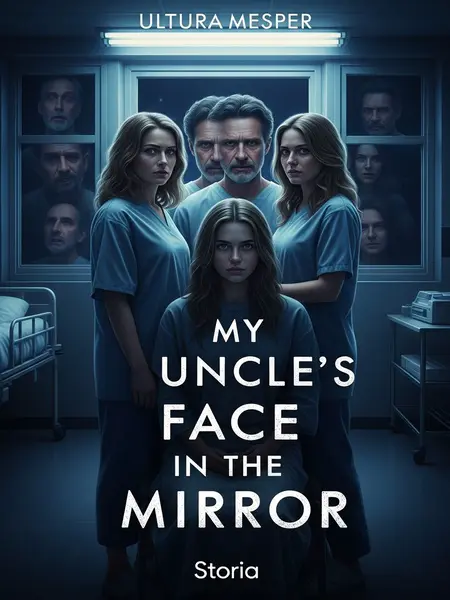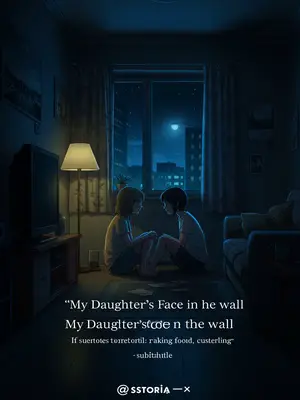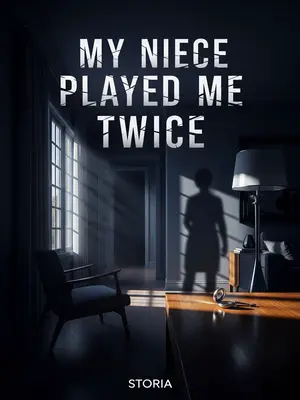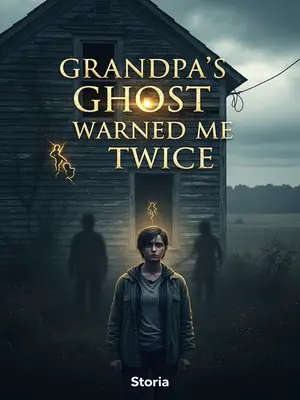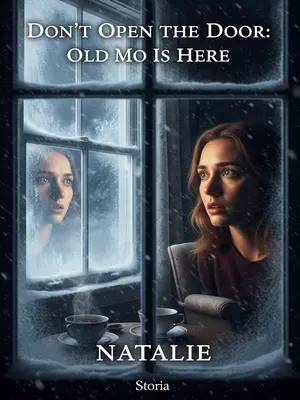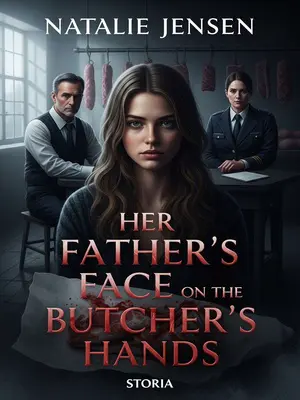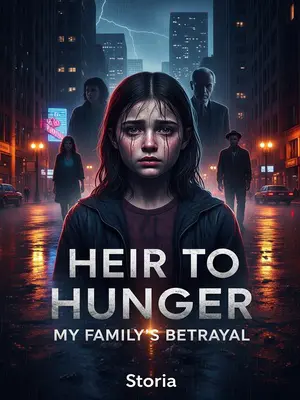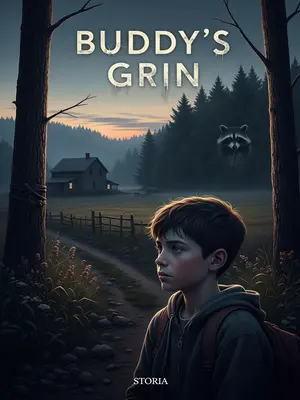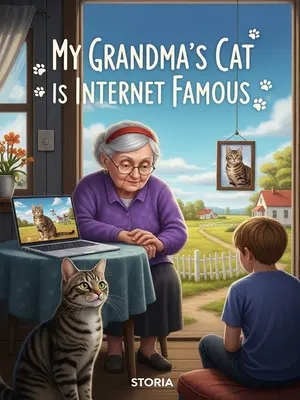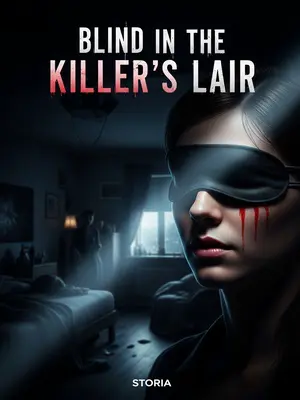Chapter 1: The Face in the Photo
I was in a serious car accident and got hurt.
The moment I came to in that cold hospital room—the kind with scratchy sheets and the distant hum of vending machines out in the hallway—every muscle in my body screamed. My mind was thick with painkillers, thoughts moving sluggishly, like trying to slog through Ohio mud after a summer thunderstorm.
My mom took a Greyhound bus from her tiny Ohio town just to see me.
I could see her in my mind: fussing with her old duffel bag, rosary beads clutched in one hand, rolling her eyes at the cast of characters on the bus, counting every minute until she could finally hug her only child. She probably spent all seven hours worrying, imagining the worst, her nerves wound tight as piano wire.
When she stepped off the bus, she snapped a picture of me with her phone.
That was so like her—always wanting proof we’d survived another challenge. She fumbled for her battered iPhone, hands shaking from cold or nerves, and caught me in front of the city hospital, my figure slumped. The wind bit through her old OSU sweatshirt and puffy coat.
"Sweetheart, I brought your favorite roast beef sandwiches. You know I couldn’t show up empty-handed."
Her voice wrapped around me with that warm, familiar twang. No matter what, she always showed up with something home-cooked—roast beef sandwiches, wrapped in wax paper, bread soaking up the juices. Even in the worst times, she believed in the healing power of a good meal.
But when I opened the photo, my brow furrowed hard.
Something icy crawled up my spine. In that grainy, unfiltered image, my battered face wasn’t the only thing staring back. I blinked, thinking it was a trick of the light or maybe the painkillers fogging my brain. The antiseptic taste of the hospital lingered on my tongue as my heart raced, the room seeming to tilt just slightly.
My mouth went dry. For a second, I wondered if the painkillers were playing tricks on me. But the figure stayed—solid, undeniable. I gripped the phone so tight my knuckles ached.
In the corner of the photo, a strange human figure crawled on all fours, like a massive spider.
My fingers trembled as I zoomed in. That thing—whatever it was—looked grotesquely human and not human at all, knees and elbows bent at impossible angles, head twisted in a way that made me want to gag. I could almost smell the electric tang of fear, mixing with the hospital’s sterile scent.
I immediately texted my mom:
"Mom, a person’s face never changes."
I hesitated, wishing I could just call her and hear her voice, but I didn’t dare. My thumb hovered over the screen, each second stretching out painfully.
"And... it’s coming..."
---
1
"Sweetheart, what are you talking about?" Mom replied, confusion in every syllable.
Her reply pinged in almost instantly, her worry coming through in that little bubble. I could see her glancing around, brow furrowed, already convinced I’d hit my head too hard.
I looked deadly serious:
My jaw clenched, every muscle tense. I tried to pour all my urgency into that tiny screen, the antiseptic tang of fear burning my nostrils.
"Mom, don’t look back. Go inside the hospital first."
"In a minute, head to the infusion area on the second floor—there are more people there."
"It recognizes people by their scent."
The words sounded insane, like something from a late-night horror flick, but I trusted my gut. I pictured Mom hesitating, lips parted as she tried to process my warnings—but she always listened to me, even when she didn’t understand.
Even though she didn’t get what I meant, she still did as I asked and headed for the infusion area on the second floor.
I pictured her clutching her purse with both hands, weaving through the maze of fluorescent-lit corridors, her shoes squeaking on linoleum, the scent of overbrewed coffee and disinfectant heavy in the air. Maybe she whispered a prayer, stubbornness warring with fear.
I carefully reopened the photo to check again.
I couldn’t shake the feeling I’d missed something. My finger hovered as I zoomed in on the grainy edge, pixels blurring together. I squinted, hospital lights flickering overhead like they might give out any second.
The figure was still there, crawling on all fours—never changing its posture.
It was as if the thing was frozen in time, an interloper caught in digital amber. The hairs on my neck prickled. My breathing quickened, shallow and tight.
I zoomed in, but the camera glitched, as if jammed by something unnatural:
The image fractured, fizzing with static like an old TV on a dead channel. Every time I tried to get closer, the phone shivered, refusing to focus. It felt deliberate—like it didn’t want to be seen, as if technology itself recoiled from what it had captured.
The figure turned into a big patch of static, totally unrecognizable.
It was like staring into a black hole on my phone, familiar shapes dissolving into a blur that made my stomach twist. Every instinct screamed at me to look away, to throw the phone and run.
Suddenly, my mind cleared.
A jolt of realization snapped through me, slicing the fog of pain and panic. Logic snapped back into place, cold and sharp. I remembered stories online—predators tracking people through their electronics. Goosebumps prickled my arms.
That thing can track people using cell phone signals.
All electronic devices are useless against it.
My heart hammered harder, the cheap hospital clock ticking painfully slow. Every device in the building could be a beacon for whatever was hunting us. Sweat broke out on my palms as I tried to plan my next move.
I immediately texted my mom again:
"Mom, just pick any floor and toss your phone in a trash can."
"Then wait for me in the infusion area on the second floor. I’ll come find you."
I added, "Don’t answer any calls or texts from anyone, not even me, until I get there. Please, Mom."
I quickly got up and found a young nurse.
My legs wobbled, but adrenaline pushed me forward. The nurse—a young guy with shaggy brown hair, badge reading ‘Chris’—looked up from his chart, startled. I tried to sound calm, hands jammed in my hospital gown pockets to hide their shaking.
I pulled up Venmo on Chris’s phone and sent myself two hundred bucks—just in case. Then I sealed my own phone tight in a hospital plastic bag, knotted it, and tossed it into the trash—feeling like I was cutting a lifeline, but knowing it might be the only way to keep us safe.
That should buy us some time.
I wiped sweat from my brow, tried to slow my breath, and braced myself to move. In a place like this, time always seems to move both too fast and too slow—each second pressing in like a weight.
As I stepped into the elevator, a stranger suddenly appeared just outside.
I caught the briefest glimpse—tall, wearing a stiff gray windbreaker that looked like it belonged in a thrift store. He hovered by the closing doors, hands balled at his sides, face just... wrong, in a way I couldn’t name.
His face was unnaturally stiff. At first glance, his features seemed normal, but together they gave off a chilling vibe.
His lips didn’t move with the rest of his face. His eyes lingered on mine a split second too long, a cold stare that didn’t blink. It was like a mannequin had learned to move. I shivered, mashing the ‘close door’ button with frantic urgency.
That fake human feeling—I knew it all too well.
It was the same uncanny sensation I’d felt on the Amtrak, memory rising up like bile. My chest tightened, a jolt of déjà vu leaving me reeling. Every cell in my body screamed to get away.
Just like before, on the Amtrak train…
The memory—the shriek of brakes, flickering overhead lights, the sickening realization that something on board wasn’t human—flashed across my mind, making my hands clench tight.
Luckily, the elevator doors closed just in time.
I pressed myself against the cold metal wall, watching as the doors sealed shut with a soft thud, locking him out. Relief fluttered in my chest, but it was gone in an instant.
I was about to breathe a sigh of relief when I heard a creaking sound above me.
It sounded like someone—or something—shifting their weight, metal groaning under the strain. My breath caught. The elevator shuddered, and every instinct screamed that I wasn’t alone.
A metallic taste filled my mouth as my teeth slammed together. I tried to swallow, but my throat was locked tight with terror.
The descending elevator seemed to have its cable snagged by something.
There was a sudden jolt. The digital floor indicator flickered, then froze between numbers. The air felt charged, heavy with static. Sweat pooled at my temples as I gripped the handrail.
The car hung between the fifth and fourth floors.
It was like being trapped in a metal coffin suspended by a thread. I tried to steady my breathing, my mind racing for a way out. The familiar hospital announcements had faded to an ominous silence.
Heavy footsteps thudded on top of the elevator.
They echoed in the cramped car, slow and deliberate—each step making the ceiling bow ever so slightly. I squeezed my eyes shut, praying this was some bizarre mechanical malfunction, not what I feared.
Something was moving in the shaft.
I pressed my ear against the cold metal, straining to hear. The air tasted metallic, and the distant whine of the building’s old pipes only amplified the horror.
My heart pounded wildly. How could I possibly escape from such a tight space?
My thoughts spiraled. No windows, no emergency hatch I could reach, the doors sealed tight. Panic clawed at my throat, threatening to choke me. Every part of my body screamed, Get out now!
The footsteps moved back and forth above my head.
They seemed to pace, like a predator hunting, waiting for the right moment. I could hear the faint scuffle of limbs, a rasping, predatory breath—so close I could almost feel it through the ceiling.
That thing seemed to be searching for a way inside.
Every second stretched, the silence broken only by the faint metallic clicks and the creak of the elevator cables. I huddled against the corner, making myself small, half-hoping it wouldn’t notice me.
Soon, a tooth-grinding scraping sound started at the top of the car—sharp claws furiously scratching the metal.
The screech set my teeth on edge, the high-pitched squeal echoing down the shaft. It was like nails on a chalkboard multiplied by a thousand—only these nails wanted in.
It... wanted to come in.
I stared up at the metal ceiling, imagining it giving way, claws bursting through, the thing dropping down on top of me. My pulse hammered in my ears, my hands slick with sweat.
I immediately called the emergency phone inside the elevator.
Fumbling, I yanked the red plastic cover off the little phone set into the wall and mashed the button, praying for an answer. My voice came out raw, barely above a whisper, "Help, please—"
"The elevator’s stuck—there’s something on top."
My words tumbled out faster than my brain could process. I forced myself to speak slowly, trying to sound calm, but the edge of panic was unmistakable.
The emergency line answered in a calm, unhurried voice:
A man’s voice, monotone, almost bored. "Understood. We’ll be there right away."
I cursed under my breath. These repair guys were really something else.
Couldn’t he at least pretend to be alarmed? The banality of his tone made my skin crawl. I wondered how many times a day he dealt with people trapped, but probably never like this.
As soon as the call ended, the noises above vanished.
The silence was sudden and complete, thick as cotton. The scratching stopped. The footsteps faded. I was left alone with the thrum of my own heart, the sterile light overhead flickering.
The whole elevator fell eerily silent.
Time seemed to stop. Even my breath felt too loud. I pressed my back against the wall, counting the seconds, waiting for something—anything—to happen.
The fluorescent lights overhead made me dizzy.
They hummed, a faint buzz growing louder. Spots danced in my vision, nausea threatening to rise. It felt like the world was shrinking, closing in on me from all sides.
I strained to listen for any sound in the shaft.
I pressed my ear to the door, trying to tune out my own ragged breathing. Nothing. Just the faintest whiff of old oil and dust, the mechanical heart of the hospital pausing in anticipation.
Just as I thought that thing had left—
A tremendous crash shook the elevator.
The entire car bucked, metal shrieking as something heavy landed on the roof. My stomach lurched, and for a split second I thought the whole shaft would collapse.
The car plunged downward.
Gravity disappeared. I was weightless for an instant, the air whistling in my ears, the world rushing past in a blur of terror. It was the kind of drop that makes your bones feel hollow.
I was thrown up into the air.
For a split second, I hovered, stomach in my throat, my head almost grazing the ceiling. It was like one of those nightmares where you fall and never land—except this was horribly, gut-churningly real.
Only after the elevator dropped about a floor did it stop suddenly.
The brakes screeched, slamming me back to the floor with bone-jarring force. Pain shot up my legs, rattling my teeth. I lay there for a heartbeat, too stunned to move.
I slammed hard onto the floor, my bones feeling like they might shatter.
For a moment, the world blurred at the edges. I gasped, desperate for air, tasting blood at the back of my throat. My limbs screamed in protest, but adrenaline kept me going.
That thing is smarter than before.
It was learning—adapting. I realized that this was no ordinary predator. It was watching, waiting, testing my responses. The old rules didn’t apply anymore.
Luckily, this time it stopped at the third floor.
I scrambled to my feet, legs wobbling like a newborn deer. The digital floor display blinked ‘3,’ the elevator doors shuddering, fighting to open.
Suddenly, the elevator door was pried open a crack.
A sliver of light knifed through, blinding after the fluorescent glare. I stumbled back, heart in my throat, eyes glued to the widening gap.
A finger poked in through the gap.
It was long, almost too long, the nail chipped and dirty. For a split second, my mind screamed that this was it—that the thing had found me. I held my breath, muscles coiled to run, even though there was nowhere to go.
I shuddered in terror and quickly backed away.
My feet caught on the edge of the rubber mat, body pressed flat against the back wall. I fumbled for something—anything—to defend myself, but there was only the empty echo of my own panic.
Thankfully... it was a false alarm.
A voice—a real, human voice—shouted, "You okay in there? Hold on!" Relief crashed through me in a tidal wave.
It was the elevator repairman’s hand.
A burly guy in a neon vest, sweat trickling down his brow, wedged his crowbar deeper into the gap. I could have hugged him.
He used a crowbar to force open the doors.
With a grunt, he pried the metal apart, the doors groaning in protest. Sunlight from the hallway spilled in, and the scent of burnt rubber hit me. I stumbled out, clutching the wall for support.
I nearly collapsed just outside the doors, my knees threatening to give. For a second, I wanted to sob with relief, but there was no time.
I hurried out.
I didn’t look back, only grateful to be free. My legs felt like jelly, but I forced myself to keep moving, desperate to put distance between myself and whatever had been on top of that elevator.
But just as I stepped out, I saw another elevator also stuck on this floor.
The repairman, not missing a beat, jogged to the next elevator, crowbar at the ready. He moved fast, practiced—probably thought this was just another routine call. I wanted to shout at him to stop, to run, but the words caught in my throat.
The repairman went to pry open that elevator too.
A small crowd had gathered, the air thick with anxiety. I pressed myself against the wall, every muscle tensed, watching the man wedge his crowbar into the second set of doors.
As soon as the doors opened, screams erupted all around.
The sound was raw, primal—a chorus of fear that ricocheted off the tile. I felt the blood drain from my face, my body tensing for flight. Nurses dropped their clipboards, a security guard shouted for people to move back.
I turned and saw—a corpse, cut cleanly in half, inside the elevator.
The body was bisected, blood pooling in a thick, crimson line, organs exposed like something from a nightmare. It looked almost surgical in its precision, the kind of thing you see in a forensic crime drama—only this was real, right in front of me. Somebody yelled for 911, even though we were already in a hospital. Old habits die hard. Someone vomited behind me. A mother pulled her child away, covering his eyes.
